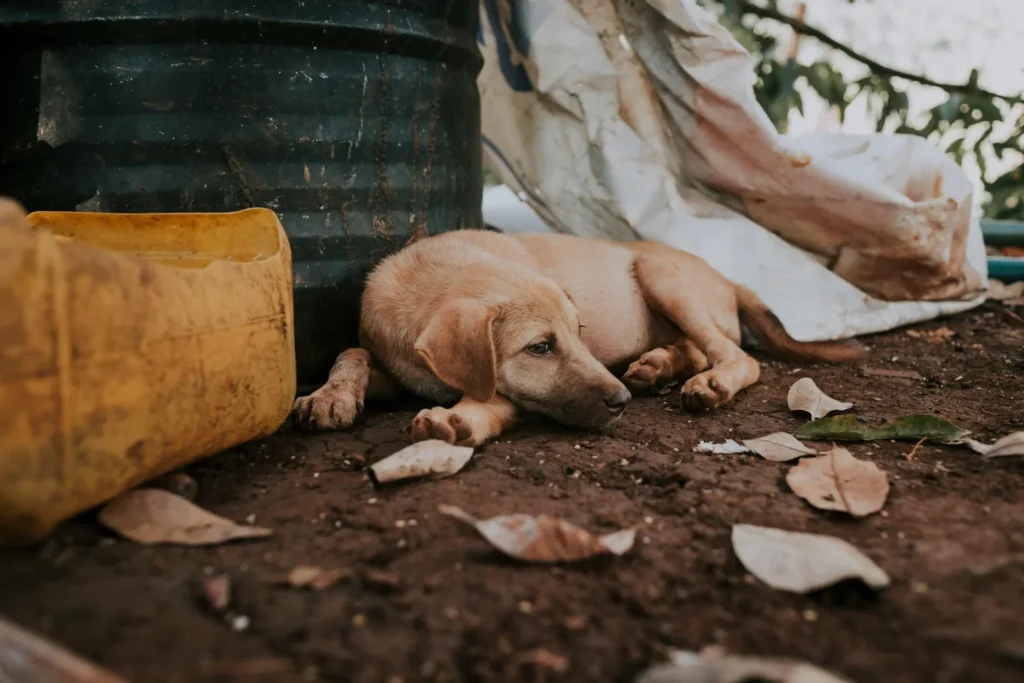Welcome, Corgi lovers and concerned pet parents! 🎉 Today, we’re diving deep into a topic that might have you worried: why is your Corgi’s nose dry? Don’t fret! We’re here to unravel this mystery and provide you with all the information you need to keep your furry friend’s sniffer in tip-top shape. So, grab a cup of tea ☕, snuggle up with your Corgi, and let’s embark on this nasal adventure!
Understanding the Corgi Nose: More Than Just Cute! 🔍
Before we tackle the dry nose dilemma, let’s take a moment to appreciate the marvel that is your Corgi’s nose. It’s not just an adorable button on their face – it’s a sophisticated sensory organ!

The Amazing Abilities of a Corgi’s Nose
- Scent detection: A Corgi’s nose is about 10,000 to 100,000 times more sensitive than a human’s! �superhero
- Temperature regulation: The nose helps Corgis cool down by releasing excess heat.
- Moisture sensing: A wet nose helps Corgis detect the direction of scents in the air.
- Health indicator: The condition of a Corgi’s nose can offer clues about their overall health.
The Myth of the Wet Nose: Debunking Common Misconceptions 🤔
You’ve probably heard that a healthy dog should always have a wet, cold nose. But is this really true? Let’s separate fact from fiction!
Myth vs. Reality
Myth: A dry nose always means a dog is sick.
Reality: A dog’s nose naturally fluctuates between wet and dry throughout the day.
Myth: You can tell a dog’s health solely by their nose.
Reality: While the nose can offer clues, it’s not a definitive health indicator on its own.
Myth: A wet nose means a dog isn’t running a fever.
Reality: Nose temperature doesn’t accurately reflect body temperature.
Now that we’ve cleared up some misconceptions, let’s dive into the main question at hand…
Why Is My Corgi’s Nose Dry? The Possible Culprits 🕵️♂️
A dry nose on your Corgi isn’t always cause for alarm. There are several reasons why your pup’s sniffer might be less moist than usual:
- Dehydration: If your Corgi isn’t drinking enough water, it can lead to a dry nose.
- Weather conditions: Cold or hot weather can dry out your Corgi’s nose.
- Sleeping: Corgis don’t lick their noses while sleeping, leading to temporary dryness.
- Age: Older Corgis may have drier noses due to decreased tear production.
- Breed characteristics: Some Corgis naturally have drier noses than others.
- Allergies: Environmental allergies can cause nose dryness.
- Sunburn: Yes, Corgi noses can get sunburned!
- Medical conditions: In some cases, a dry nose could indicate an underlying health issue.
The Corgi Nose Through the Ages: Puppy to Senior 👶➡️👴
As your Corgi grows, their nose undergoes changes too. Let’s look at what’s normal for each life stage:
| Age Stage | Typical Nose Condition | Special Considerations |
|---|---|---|
| Puppy (0-1 year) | Usually moist | May dry out during teething |
| Adult (1-7 years) | Varies, often moist | Monitor for sudden changes |
| Senior (8+ years) | May be drier | Could be due to decreased tear production |
Corgi Noses vs. Other Breeds: A Snout-to-Snout Comparison 👃
How do Corgi noses stack up against other popular breeds? Let’s take a look:
| Breed | Typical Nose Moisture | Nose Shape | Special Features |
|---|---|---|---|
| Corgi | Moderately moist | Medium-length | Helps with herding instincts |
| Labrador | Very moist | Large, broad | Excellent for water retrieval |
| Pug | Often dry | Very short | Prone to breathing issues |
| German Shepherd | Moist | Long | Great for scent work |
| Chihuahua | Can be dry | Small, pointed | Sensitive to temperature changes |
The Pros and Cons of a Dry Corgi Nose 📊
Believe it or not, there can be both advantages and disadvantages to a dry nose. Let’s break it down:
Pros of a Dry Nose 👍
- Less messy: A dry nose means fewer wet nose prints on your windows!
- Reduced allergen collection: A dry nose may collect fewer environmental allergens.
- Easier to apply sunscreen: Sunscreen adheres better to a dry nose, offering better protection.
Cons of a Dry Nose 👎
- Reduced scenting ability: A moist nose helps Corgis detect and differentiate scents better.
- Potential discomfort: Very dry noses can become cracked or painful.
- Possible health indicator: Persistent dryness could signal an underlying health issue.
Should I “Treat” My Corgi’s Dry Nose? The Great Debate 🤔
Now, you might be wondering if you need to do anything about your Corgi’s dry nose. The answer isn’t always straightforward, but here are some guidelines:
When to Leave It Alone
- If the dryness is temporary (e.g., after sleeping)
- If your Corgi seems otherwise healthy and happy
- If it’s a natural characteristic of your individual dog
When to Take Action
- If the dryness is accompanied by other symptoms (lethargy, loss of appetite, etc.)
- If the nose becomes cracked or painful
- If the dryness persists for an extended period
Remember, when in doubt, always consult with your veterinarian!
The Effects of a Dry Nose: Short-Term and Long-Term 🕰️
Understanding the potential effects of a dry nose can help you make informed decisions about your Corgi’s care.
Short-Term Effects
- Reduced scenting ability: Your Corgi might have a harder time tracking scents.
- Mild discomfort: The nose might feel tight or itchy.
- Increased susceptibility to sunburn: Dry noses are more prone to sunburn.
Long-Term Effects
- Chronic dryness: Without proper care, the nose may become persistently dry.
- Cracking or bleeding: Severe dryness can lead to painful cracks.
- Potential scarring: If left untreated, cracked noses can develop scar tissue.
Signs and Symptoms: When to Worry About Your Corgi’s Dry Nose 🚨
While a dry nose isn’t always cause for concern, there are some red flags to watch out for:
- Cracking or bleeding: If you notice any cracks or blood on your Corgi’s nose, it’s time to see the vet.
- Color changes: A normally pink nose turning pale or dark could indicate a problem.
- Nasal discharge: Any unusual discharge, especially if thick or discolored, warrants a vet visit.
- Excessive pawing at the nose: If your Corgi seems bothered by their nose, there might be an underlying issue.
- Accompanying symptoms: Lethargy, loss of appetite, or other behavioral changes alongside a dry nose should be checked out.
Remedies and Solutions: Keeping Your Corgi’s Nose Happily Moist 💧
If you’ve determined that your Corgi’s dry nose needs some TLC, here are some safe and effective remedies:
- Increase hydration: Ensure your Corgi always has access to fresh water.
- Use a humidifier: This can help keep the air (and your Corgi’s nose) moist.
- Apply dog-safe moisturizers: Products like Snout Soother or coconut oil can help.
- Protect from sun exposure: Use dog-safe sunscreen or limit outdoor time during peak sun hours.
- Check for allergies: Work with your vet to identify and manage any allergies.
- Boost omega-3 intake: These fatty acids can help maintain skin health, including the nose.
Remember, always consult with your veterinarian before starting any new treatments!
The Curious Case of the Corgi Nose: Fascinating Facts 🤓
Did you know…
- A Corgi’s nose print is as unique as a human fingerprint! 🖼️
- Corgis have about 300 million olfactory receptors in their noses, compared to our measly 6 million! 👃
- The term for a dog’s nose is “rhinarium” – sounds fancy, doesn’t it? 🎩
- Corgis can wiggle each nostril independently! 🕺
- A Corgi’s wet nose helps them determine which direction a smell is coming from. 🧭
FAQs: Your Burning Questions About Corgi Noses Answered 🔥
Q: Can I use human moisturizer on my Corgi’s dry nose?
A: It’s best to stick with products made specifically for dogs. Human products may contain ingredients harmful if ingested.
Q: How often should I check my Corgi’s nose?
A: Make it a habit to look at your Corgi’s nose daily. This way, you’ll quickly notice any changes.
Q: Can a dry nose affect my Corgi’s sense of smell?
A: While a very dry nose might slightly impact scent detection, most Corgis will still have an excellent sense of smell even with a dry nose.
Q: Is a dry nose a sign of dehydration in Corgis?
A: Not necessarily. While dehydration can cause a dry nose, many other factors can as well. Look for other signs of dehydration like lethargy or sunken eyes.
Q: Can stress cause my Corgi’s nose to be dry?
A: Yes, stress can potentially lead to changes in your Corgi’s nose moisture. If you suspect stress, try to identify and address the cause.
Wrapping Up: Navigating the World of Corgi Noses 🌈
And there you have it – everything you ever wanted to know about your Corgi’s dry nose (and probably a bit more)! 🎊 Remember, while a dry nose can sometimes be a cause for concern, it’s often just a normal part of your Corgi’s day-to-day life.
The key is to know your Corgi’s normal. By regularly checking your pup’s nose and overall health, you’ll be better equipped to spot any potential issues early on. And of course, when in doubt, don’t hesitate to consult with your trusted veterinarian.
So, the next time you boop that adorable Corgi snoot, you’ll have a wealth of knowledge about what’s going on beneath the surface. Here’s to happy, healthy Corgis and their wonderful noses! 🐾👃💖



